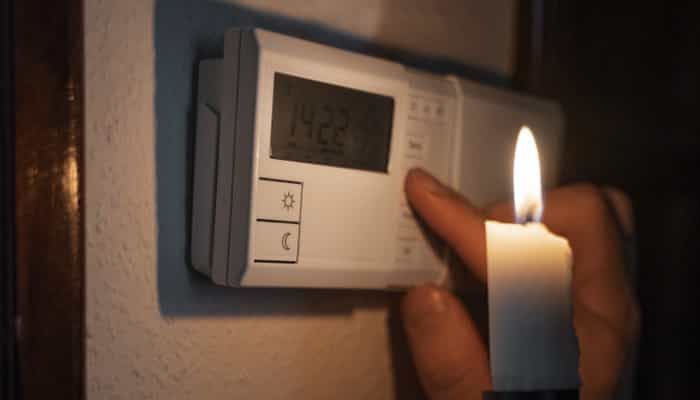
Load shedding can be a real inconvenience, and it’s essential to understand how to cope with it. In this article, we’ll delve deep into the world of load shedding paragraphs, offering practical tips, advice, and insights to help you navigate through power outages efficiently.

Load Shedding Paragraph Explained
What Is a Load Shedding Paragraph?
In the realm of load shedding, the term “load shedding paragraph” refers to a designated period during which electrical power is intentionally cut off in specific areas. This controlled power outage helps balance the electricity supply and demand, preventing a complete grid failure.
The Importance of Load Shedding Paragraphs
Load shedding paragraphs is a necessary evil. While they may disrupt daily life, they prevent more extensive, unplanned power outages. Understanding how they work can help you prepare for such situations.
Coping with Load Shedding
During load shedding, it’s crucial to conserve energy. Turn off non-essential appliances and use energy-efficient lighting. Stock up on essentials like candles, flashlights, and power banks to stay connected during outages.
Managing Load Shedding Efficiently
Creating a Load Shedding Schedule
One way to minimize the impact of load shedding is to create a schedule. Familiarize yourself with your area’s load shedding timetable, which is usually provided by your power utility company. This way, you can plan your day accordingly.
Investing in Backup Power
Consider investing in a backup power source, such as a generator or an uninterruptible power supply (UPS). These options can keep critical appliances running during load shedding, providing you with some relief.
Reducing Power Consumption
Make an effort to reduce your overall power consumption. Unplug chargers, switch to energy-efficient appliances, and insulate your home to maintain a comfortable temperature without excessive heating or cooling.
Load shedding paragraphLoad shedding paragraph for HSC
Load shedding is a recurring issue that has become an integral part of our daily lives. We encounter load shedding almost every day, and it arises when the power supply falls short of meeting the demands of consumers. This power shortage creates a significant crisis in the provision of electricity. The primary cause of load shedding can be attributed to haphazard electricity distribution, often exacerbated by illegal connections and inadequate electricity production.
The consequences of load shedding are dire, affecting people across various sectors of society. Productivity takes a hit, as individuals struggle to perform their work efficiently. Students find it exceptionally challenging to study under these circumstances and the general public faces hazardous situations as essential services are disrupted. The industrial sector, in particular, bears the brunt of this issue, with excessive load shedding leading to substantial economic losses. During these periods, production and industrial operations grind to a halt, affecting the country’s overall economy.
Load shedding disrupts daily life as cinemas, shopping malls, and factories are forced to close their operations due to the inability to function properly. Students, meanwhile, are deprived of the optimal conditions for studying and preparing for examinations. This problem has plagued our country for an extended period, and a viable solution has remained elusive.
It is imperative that the government takes decisive action to address this crisis. Failure to do so will prolong the suffering of the people. Equal distribution of electricity must become a priority, and measures to curb electricity theft should be implemented rigorously. Such theft not only disrupts the power supply but also incurs significant losses for the country.
However, it is not solely the government’s responsibility to alleviate this issue. The public must also exhibit awareness and responsibility regarding their electricity consumption. Efficient and responsible use of electricity should be a focal point. The current system necessitates discipline and order, as its current lack of structure is inflicting harm and suffering on the populace.
In the long run, the government should enforce regulations that encourage the judicious use of electricity, minimizing losses in the process. Solving the load shedding crisis will require collective effort and cooperation from all stakeholders to ensure a consistent and reliable power supply for the people.
Load shedding paragraph for the SSC exam
Load shedding is a direct consequence of insufficient electricity supply, which significantly disrupts the lives of ordinary citizens. Many major cities grapple with the issue of load shedding as there are instances when the demand for electricity surpasses the available supply. This discrepancy between supply and demand leads to load shedding, which in turn has a detrimental impact on our daily routines. People from all walks of life bear the brunt of this problem, as it affects not only households but also industrial operations.
Factories and mills suffer a decline in production due to load shedding, causing interruptions in various processes and operations. The situation continues to deteriorate with time, and no clear solution seems to be in sight. To combat this issue, the government needs to implement more comprehensive strategies aimed at eliminating load shedding.
In addition to inadequate power supply, unplanned distribution exacerbates the problem, impeding both the social and economic development of our nation. This affects not only industries but also educational institutions, as students face difficulties in studying effectively, and medical services encounter severe disruptions. The situation has spun out of control, and it is crucial for the government to take proactive measures.
One crucial step in addressing this issue is to establish additional power plants, given the high demand for electricity. A well-devised plan can ensure the equitable distribution of electricity, thereby mitigating the problem. Therefore, the government must take decisive actions to curtail load shedding. Furthermore, it is incumbent upon us to be responsible and not misuse electricity, as this can help alleviate the issue on multiple fronts.
Load Shedding Paragraph In 100 Words
Power cuts are a common occurrence in our modern society, resulting in the interruption of electricity supply. These interruptions happen when power generation falls short of the demand. When demand surpasses supply, it disrupts the flow of electrical power. Such situations have a profound impact on our daily lives because most electronic devices rely on electricity. Consequently, industries, factories, stores, hospitals, and educational institutions cannot operate without a stable supply of electricity. Load-shedding adversely affects both our economic growth and our day-to-day routines.
To address this issue, there is no alternative but to increase power generation. The government must formulate a comprehensive strategy to mitigate load shedding or, at the very least, maintain it at a manageable level.
Paragraph on Load Shedding বাংলা অর্থসহ
Load shedding means the discontinuity of the supply of electricity for a short or long time. Nowadays it has become a part of our daily life. There are many reasons for load shedding. The insufficient production of electricity is the main reason for this. Misuse and illegal connection of electricity are the other reasons for it. It occurs mostly at night because the demand for electricity is more than in the daytime. The bad effects of load shedding are beyond description. It creates problems in the socio-economic development of the country. Mills and factories, shops, hospitals, etc. become paralyzed due to load shedding. The sufferings of the students know no bounds. They sit in the darkness closing their books during the load shedding. They suffer a lot if it occurs at the time of their examination. The patients also suffer terribly because operation stops in hospitals for load shedding. Load shedding at night also encourages the thieves. However, this problem should be solved at any cost. The concerned authority must take the necessary steps to stop it. More power stations should be established. Illegal connection and system loss should also be stopped. After all, there is no alternative to be conscious about the misuse of electricity.
লোড শেডিং (বিদ্যুৎ বিভ্রাট) মানে স্বল্প বা দীর্ঘ সময়ের জন্য বিদ্যুত সরবরাহ বন্ধ হয়ে যাওয়া। আজকাল এটি আমাদের দৈনন্দিন জীবনের একটি অঙ্গ হয়ে দাঁড়িয়েছে। লোডশেডিংয়ের অনেক কারণ রয়েছে। বিদ্যুতের অপর্যাপ্ত উত্পাদন এটির মূল কারণ। বিদ্যুতের অপব্যবহার এবং অবৈধ সংযোগ এটির অন্যান্য কারণ। এটি বেশিরভাগ রাতেই ঘটে কারণ দিনের তুলনায় বিদ্যুতের চাহিদা বেশি। লোডশেডিংয়ের খারাপ প্রভাব বর্ণনার বাইরে। এটি দেশের আর্থ-সামাজিক উন্নয়নে সমস্যা সৃষ্টি করে। মিল ও কল-কারখানা, দোকান, হাসপাতাল ইত্যাদি লোডশেডিংয়ের কারণে পক্ষাঘাতগ্রস্থ হয়ে পড়েছে। শিক্ষার্থীদের ভোগান্তির কোনও সীমা নেই। তারা লোডশেডিংয়ের সময় বইগুলি বন্ধ করে অন্ধকারে বসে থাকে। এটি যদি তাদের পরীক্ষার সময় ঘটে তবে তারা প্রচুর ভোগে। লোডশেডিংয়ের জন্য হাসপাতালে অপারেশন বন্ধ থাকায় রোগীরা ভয়াবহভাবে ক্ষতিগ্রস্থও হন। রাতে লোডশেডিং চোরদের উত্সাহ দেয়। তবে যে কোনও মূল্যে এই সমস্যাটি সমাধান করা উচিত। এটি বন্ধে সংশ্লিষ্ট কর্তৃপক্ষকে অবশ্যই প্রয়োজনীয় পদক্ষেপ নিতে হবে। আরও বিদ্যুৎ কেন্দ্র স্থাপন করা উচিত। অবৈধ সংযোগ এবং সিস্টেমের ক্ষতিও বন্ধ করা উচিত। সর্বোপরি বিদ্যুতের অপব্যবহার সম্পর্কে সচেতন হওয়ার বিকল্প নেই।
Load Shedding Paragraph: FAQs
How Is Load Shedding Paragraph Different from a Power Outage?
A power outage is typically an unforeseen event caused by technical faults or natural disasters. In contrast, a load shedding paragraph is a controlled interruption by power companies to prevent more extensive issues.
How Can I Find My Area’s Load Shedding Schedule?
You can usually find your area’s load shedding schedule on your power utility company’s website, or you can inquire with their customer service.
Is Load Shedding Paragraph the Same Everywhere?
No, load shedding paragraphs vary by region, and they can change seasonally. Staying informed about your local schedule is crucial.
Can I Appeal or Avoid Load Shedding?
Load shedding is a regulatory measure to prevent larger problems. You can’t avoid it, but you can prepare for it.
What Can I Do During Load Shedding?
Use this time to bond with family, read, or enjoy a quiet moment. Disconnect non-essential devices and focus on conserving energy.
How Long Do Load Shedding Paragraphs Last?
The duration of load shedding paragraphs can vary but typically ranges from a few hours to several times a week.
Conclusion
Load shedding paragraphs may disrupt your routine, but with the right approach and preparation, you can minimize their impact. By creating a schedule, investing in backup power sources, and reducing your energy consumption, you can weather these interruptions effectively.

















